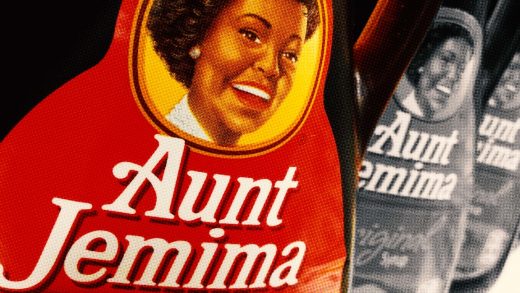PepsiCo is retiring the Aunt Jemima brand—and it’s about damn time
PepsiCo announced today that it will be retiring the Aunt Jemima brand.
“We recognize Aunt Jemima’s origins are based on a racial stereotype,” Kristin Kroepfl, vice president and chief marketing officer of Quaker Foods North America, said in a press release first reported by NBC News. “As we work to make progress toward racial equality through several initiatives, we also must take a hard look at our portfolio of brands and ensure they reflect our values and meet our consumers’ expectations.”
The company said that packaging without the Aunt Jemima image will begin to appear by the end of this year, while a name change is set to be announced at a yet-to-be-set later date.
The mystery around a new name of course had Twitter users filling the vacuum, most notably with Aunt Karen. The Onion, meanwhile, suggested Sheila, a Black female lawyer who sometimes enjoys pancakes.
Quaker Oats Replaces Historically Racist Aunt Jemima Mascot With Black Female Lawyer Who Enjoys Pancakes Sometimes https://t.co/OPI1BnYVaD pic.twitter.com/87rr9ZZ7yG
— The Onion (@TheOnion) June 17, 2020
The image of Aunt Jemima was created in 1889, based off a minstrel song called “Old Aunt Jemima.” Quaker Oats bought the brand in 1926. According to the company history, there was even an Aunt Jemima restaurant at Disneyland in 1955. The entire image was a nod to Black servitude and, by extension, slavery. It was last updated in 1989 (!), when Jemima acquired pearl earrings and a lace collar, but the brand’s foundations obviously remained.
Also in the company statement Kroepfl said, “We acknowledge the brand has not progressed enough to appropriately reflect the confidence, warmth and dignity that we would like it to stand for today. We are starting by removing the image and changing the name. We will continue the conversation by gathering diverse perspectives from both our organization and the Black community to further evolve the brand and make it one everyone can be proud to have in their pantry.”
The history of Aunt Jemima is not new information, and there have been calls to retire the brand before. But the momentum of the current wave of racial equality protests were finally enough to push PepsiCo and Quaker Oats into action. Just as statues of colonizers and white supremacist generals around the world are being taken down, so too should brands be examined in a similar fashion. As we’ve learned with other monuments, history and familiarity are not good enough reason for painful reminders to remain.
Next up is Mars’ Uncle Ben’s rice, whose mascot is an elderly black man originally created to recall a servant or Pullman porter. This morning the company announced it would be re-examining its brand identity. In a statement it said, “As we listen to the voices of consumers, especially in the Black community, and to the voices of our Associates worldwide, we recognize that one way we can do this is by evolving the Uncle Ben’s brand, including its visual brand identity.”
In 2007, the company attempted its own makeover, making Uncle Ben “chairman of the board,” but again this was a superficial band-aid on a systemic problem for the brand. At the time, then New York Times ad critic Stuart Elliott recalled American advertising’s long history of racialized products, from Cream of Wheat’s grinning Black chef Rastus to the Mexican stereotype Frito Bandito to Pillsbury’s powdered drink mix mascots for flavors like Injun Orange and Chinese Cherry.
There are entire books analyzing the effects of racialized advertising like Aunt Jemima, including Marilyn Kern Foxworth’s 1994 book, Aunt Jemima, Uncle Ben and Rastus: Blacks in Advertising (June 23, 2020), Today and Tomorrow, which examines how slavery led naturally to the stereotypes found in early ads, and the psychological impact of these portrayals. M.M. Manring’s 1998 Slave In A Box looks at why the troubling figure of Aunt Jemima has endured in American culture.
Over the last few weeks, brands and companies of all shapes and sizes have been speaking out in the name of racial equality, posting their messages of solidarity and their black-out Instagram posts, but one thing this movement is forcing many of these businesses to confront is the very real differences between “thoughts and prayers” and real action. The former means nothing without the latter.
Thankfully, PepsiCo managed to recognize that, albeit under plenty of external pressure.
Here’s hoping more companies are self-aware enough to step up before getting called out.
(12)



